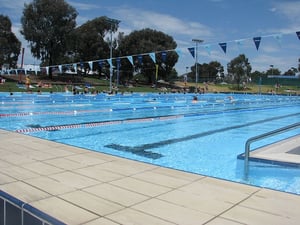A talented swimmer on the Dartmouth College swim team was exercising in a Florida YMCA pool while on vacation with his family. After a challenging 4000-yard swim set, he attempted four laps across the pool without taking a breath. Unfortunately, he was not successful. His sister noticed him motionless on the bottom of the pool and alerted a lifeguard. By the time he was pulled out of the water, it was too late. The swimmer later died at the hospital.
What Went Wrong Here?
On the surface, this story doesn’t seem to make much sense. How could an accomplished and talented swimmer drown? While swimming in a pool with many other people and monitored by lifeguards? Exact details of what happened that day are unknown, however a few things stand out about this tragedy.
Hypoxic Blackout
 It seems pretty clear this swimmer experienced hypoxic blackout. This is an extremely dangerous phenomenon and tends to happen to strong, experienced swimmers who are trying to push themselves to the limit. Essentially the swimmer’s brain doesn’t tell them to breathe when they need to and they pass out underwater.
It seems pretty clear this swimmer experienced hypoxic blackout. This is an extremely dangerous phenomenon and tends to happen to strong, experienced swimmers who are trying to push themselves to the limit. Essentially the swimmer’s brain doesn’t tell them to breathe when they need to and they pass out underwater.
Unfortunately, some swim coaches continue to teach extended breath holding as a way to increase endurance. It’s unclear if this actually does help swimmers and as tragedies like this illustrate the risks are just too great. Some organizations already have rules against extended breath holding and it should be banned in all public swimming pools.
Emergency Response
We don’t know exactly how the staff at this YMCA responded or if their emergency action plan worked as intended. However, it is concerning the swimmer’s sister had to notify a lifeguard that he stopped moving. Unsafe breath holding can be challenging for lifeguards to spot, especially since a person may seem to be swimming just fine right up until they pass out. Lifeguards need training on how dangerous extended breath holding is and how to identify swimmers who are at risk for hypoxic blackout.





